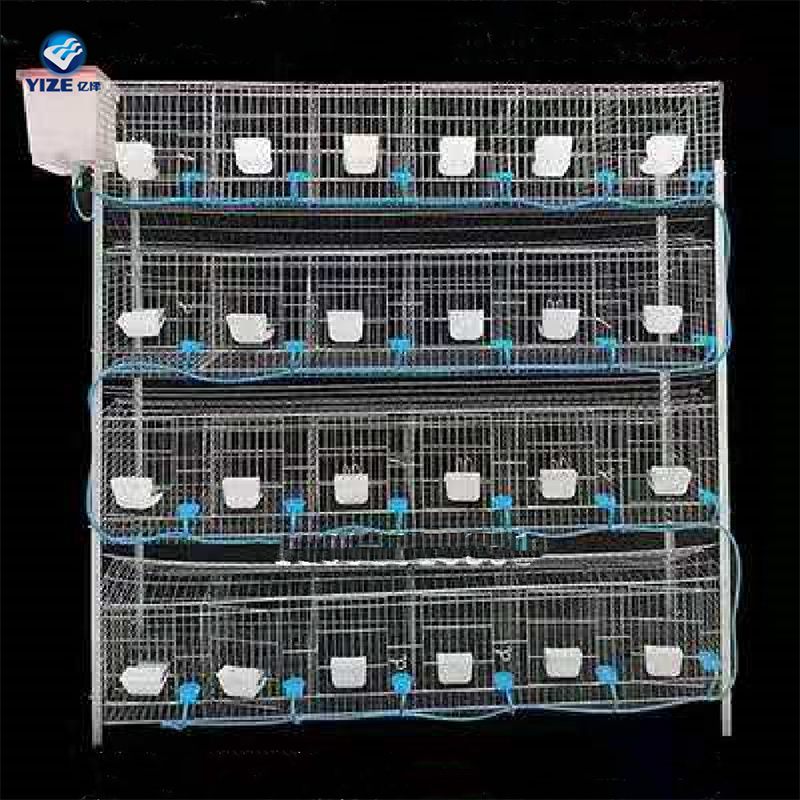Feed Production Equipment for Efficient Animal Nutrition and Processing
Dec . 25, 2024 06:54 Back to list
Feed Production Equipment for Efficient Animal Nutrition and Processing
The Importance of Feed Processing Machines in Modern Agriculture
In the realm of modern agriculture, feed processing machines have emerged as indispensable tools that significantly enhance the efficiency and productivity of livestock farming. As the global demand for meat, dairy, and other animal products continues to rise, the role of these machines in ensuring the timely and effective preparation of animal feed cannot be overstated. This article delves into the various types of feed processing machines, their functionalities, and the advantages they offer to farmers and the agricultural industry as a whole.
Feed processing machines come in a variety of forms, each tailored to perform specific functions related to the preparation of animal feed. Among the most common types are feed mixers, grinders, pellet mills, and extruders. Feed mixers are essential for ensuring the uniform distribution of various ingredients, including grains, vitamins, and minerals, creating a balanced diet for livestock. Grinders, on the other hand, pulverize raw materials to facilitate better digestion and nutrient absorption, making it easier for animals to extract essential nutrients from their feed.
Pellet mills are particularly noteworthy in the feed processing industry. These machines compress ground feed ingredients into uniform pellets, which are easier for animals to consume and digest. The pelleting process also reduces feed waste and enhances the shelf life of animal feed, making it a cost-effective option for farmers. Additionally, some pellet mills are designed to incorporate additives that can improve the nutritional profile of the feed, thereby promoting better animal health and productivity.
Extruders represent another innovative technology in feed processing. They cook and shape feed ingredients under high temperature and pressure, resulting in a product that is highly palatable and digestible. Extruded feeds are often used for aquatic species and pet foods, as they can be tailored to meet specific dietary requirements, ensuring that animals receive exactly what they need for optimal growth and health.
feed processing machine

The advantages of using feed processing machines extend beyond mere efficiency. By automating the feed preparation process, these machines help farmers save precious time and labor costs. In traditional farming practices, feed preparation can be a time-consuming and labor-intensive task. However, with the introduction of advanced feed processing technologies, farmers can focus their efforts on other critical areas of their operations, such as herd management and health monitoring.
Furthermore, feed processing machines contribute to the consistency and quality of feed. Inconsistent feed can lead to poor animal performance, affecting growth rates, reproduction, and overall health. Machines equipped with modern technology ensure that every batch of feed meets specific nutritional standards, providing livestock with the necessary ingredients for optimal growth and productivity. This consistency is paramount in commercial farming, where even slight variations in feed quality can have significant economic repercussions.
Environmental sustainability is another important factor influenced by feed processing machines. By optimizing feed formulations and reducing waste through processes like pelleting, farmers can minimize the environmental impact of their operations. Additionally, the ability to produce high-quality feed from alternative ingredients, such as by-products from other industries, is gaining traction. This not only helps reduce reliance on traditional feed sources but also promotes a more circular economy within the agricultural sector.
In conclusion, feed processing machines are vital to the evolution of modern agriculture. Their ability to enhance the efficiency, quality, and sustainability of animal feed production is invaluable in a world where food security remains a pressing concern. As technology continues to advance, the role of these machines will only become more pronounced, enabling farmers to meet the growing demands of a global population while maintaining the health of their livestock and the environment. Investing in feed processing technology is not just a step towards improving operational efficiency; it is a commitment to responsible and sustainable agricultural practices.
-
Automatic Feeding Line System Pan Feeder Nipple Drinker|Anping County Yize Metal Products Co., Ltd.
NewsJul.30,2025
-
Automatic Feeding Line System - Anping Yize|Pan Feeder,Nipple Drinker
NewsJul.30,2025
-
Automatic Feeding Line System - Anping County Yize Metal Products Co., Ltd.|Pan Feeder, Nipple Drinker
NewsJul.30,2025
-
Automatic Feeding Line System-Poultry Farming|Chicken Feeding&Watering
NewsJul.30,2025
-
Automatic Feeding Line System - Anping County Yize Metal Products Co., Ltd.|Pan Feeder Nipple Drinker,Broiler Farming
NewsJul.30,2025
-
Automatic Feeding Line System Pan Feeder Nipple Drinker-Anping County Yize Metal Products Co., Ltd.
NewsJul.30,2025






